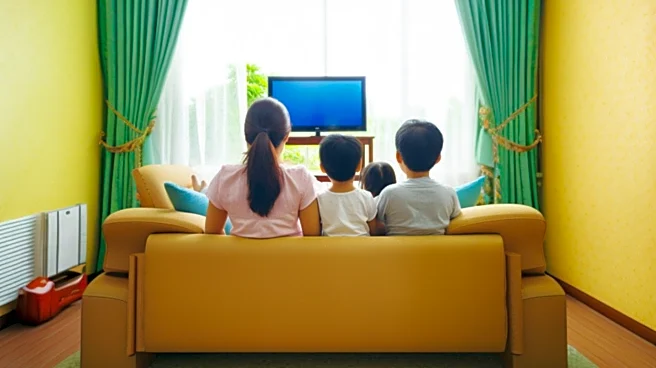What's Happening?
A recent survey conducted by Talker Research on behalf of Aura, a digital photo frame company, has explored the communication habits of parents with children who have moved out for college or careers. The study found that young adults typically move an average of 400 miles away from home, creating a significant physical distance. Despite this, 55% of parents expect daily texts from their children, though only 41% anticipate phone calls. The survey highlights a generational shift towards brief, low-effort check-ins, with only 19% of parents hearing from their children multiple times a day. Communication primarily occurs through photos and memes, with selfies and funny pictures being the most common. Parents often initiate contact, with 69% reporting they are the ones who usually reach out. Face-to-face visits are less frequent than expected, with only 18% of parents seeing their children weekly, contrary to the 30% who anticipated such visits.
Why It's Important?
The findings underscore the evolving dynamics of parent-child relationships in the digital age, where technology facilitates communication despite physical separation. This shift has implications for emotional connections, as parents rely on digital interactions to maintain bonds. The study reveals that mothers are more likely than fathers to receive frequent updates and feel emotionally closer through photo sharing. These insights are crucial for understanding how families adapt to changes brought by children moving out, highlighting the importance of digital communication in maintaining familial ties. The emotional impact on parents, particularly mothers, suggests a need for strategies to support them in navigating these transitions.
What's Next?
As digital communication becomes increasingly central to maintaining family connections, parents may seek new ways to enhance these interactions. Companies like Aura could play a role in facilitating more meaningful exchanges through technology. Additionally, the study may prompt further research into the emotional and psychological effects of these communication patterns on both parents and children. Understanding these dynamics could lead to better support systems for families experiencing the transition to an 'empty nest.'









